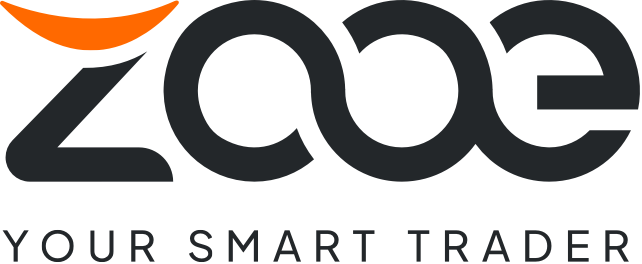Understanding Forex Trading Fees and Costs
author: 2024-07-12 click:571
Forex trading involves various fees and costs that traders need to be aware of in order to properly manage their trading expenses. Here are some of the common fees and costs associated with forex trading:
1. Spread: The spread is the difference between the buy and sell price of a currency pair. It is essentially the cost of entering a trade, and is typically quoted in pips. Brokers make money by charging traders a spread on each trade they make.
2. Commission: Some brokers charge a commission on trades instead of, or in addition to, the spread. This is a flat fee that is charged per trade, and can vary depending on the broker and the size of the trade.
3. Overnight Financing Fees: If you hold a position overnight, you may be charged a financing fee or swap rate. This is the cost of borrowing or lending the currency overnight, and can either be a cost or a credit depending on the direction of your trade.
4. Slippage: Slippage occurs when a trade is executed at a different price than the one requested by the trader. This can happen during times of high volatility or low liquidity, and can result in additional costs for the trader.
5. Deposit and Withdrawal Fees: Some brokers charge fees for depositing and withdrawing funds from your trading account. These fees can vary depending on the payment method used, such as credit card, bank transfer, or e-wallet.
6. Inactivity Fees: Some brokers may charge inactivity fees if you do not make any trades or activity in your account for a certain period of time. Make sure to read the terms and conditions of your broker to understand if they charge any inactivity fees.
7. Data Feed Fees: Some trading platforms may charge fees for accessing real-time market data and news feeds. This is important for staying informed about market movements and making timely trading decisions.
It is important for traders to carefully consider these fees and costs when choosing a broker and developing a trading strategy. By understanding and managing these expenses, traders can optimize their trading performance and profitability in the forex market.
Understanding Forex Trading Fees and Costs
When trading in the foreign exchange market, it is important to consider the fees and costs associated with your trades. These fees can have a significant impact on your overall profitability, so understanding them is crucial for successful trading.
One of the most common fees that forex traders encounter is the trading commission. This fee is charged by your broker for executing your trades and is typically calculated as a percentage of the trade size. Different brokers may have varying commission structures, so it is important to research and compare different options to find the best fit for your trading strategy.
In addition to trading commissions, forex traders may also encounter spreads. The spread is the difference between the bid price and the ask price of a currency pair, and it represents the broker's profit on the trade. Higher spreads can eat into your profits, so be sure to consider this cost when choosing a broker.
Another cost to consider when trading forex is the rollover fee. This fee is charged when you hold a position overnight and is a result of the interest rate differential between the two currencies in the pair. Rollover fees can vary depending on market conditions and the broker you are using, so be sure to factor this cost into your trading plan.
It is also important to consider any additional fees that may be charged by your broker, such as account maintenance fees or withdrawal fees. These costs can add up over time, so be sure to read the fine print of your broker's terms and conditions to avoid any surprises.
In conclusion, understanding the fees and costs associated with forex trading is essential for successful trading. By considering trading commissions, spreads, rollover fees, and any additional costs, you can make informed decisions and maximize your profitability in the foreign exchange market. Conducting thorough research and choosing a reputable broker with transparent fee structures can help you manage your trading costs effectively and achieve your trading goals.
1. Spread: The spread is the difference between the buy and sell price of a currency pair. It is essentially the cost of entering a trade, and is typically quoted in pips. Brokers make money by charging traders a spread on each trade they make.
2. Commission: Some brokers charge a commission on trades instead of, or in addition to, the spread. This is a flat fee that is charged per trade, and can vary depending on the broker and the size of the trade.
3. Overnight Financing Fees: If you hold a position overnight, you may be charged a financing fee or swap rate. This is the cost of borrowing or lending the currency overnight, and can either be a cost or a credit depending on the direction of your trade.
4. Slippage: Slippage occurs when a trade is executed at a different price than the one requested by the trader. This can happen during times of high volatility or low liquidity, and can result in additional costs for the trader.
5. Deposit and Withdrawal Fees: Some brokers charge fees for depositing and withdrawing funds from your trading account. These fees can vary depending on the payment method used, such as credit card, bank transfer, or e-wallet.
6. Inactivity Fees: Some brokers may charge inactivity fees if you do not make any trades or activity in your account for a certain period of time. Make sure to read the terms and conditions of your broker to understand if they charge any inactivity fees.
7. Data Feed Fees: Some trading platforms may charge fees for accessing real-time market data and news feeds. This is important for staying informed about market movements and making timely trading decisions.
It is important for traders to carefully consider these fees and costs when choosing a broker and developing a trading strategy. By understanding and managing these expenses, traders can optimize their trading performance and profitability in the forex market.
Understanding Forex Trading Fees and Costs
When trading in the foreign exchange market, it is important to consider the fees and costs associated with your trades. These fees can have a significant impact on your overall profitability, so understanding them is crucial for successful trading.
One of the most common fees that forex traders encounter is the trading commission. This fee is charged by your broker for executing your trades and is typically calculated as a percentage of the trade size. Different brokers may have varying commission structures, so it is important to research and compare different options to find the best fit for your trading strategy.
In addition to trading commissions, forex traders may also encounter spreads. The spread is the difference between the bid price and the ask price of a currency pair, and it represents the broker's profit on the trade. Higher spreads can eat into your profits, so be sure to consider this cost when choosing a broker.
Another cost to consider when trading forex is the rollover fee. This fee is charged when you hold a position overnight and is a result of the interest rate differential between the two currencies in the pair. Rollover fees can vary depending on market conditions and the broker you are using, so be sure to factor this cost into your trading plan.
It is also important to consider any additional fees that may be charged by your broker, such as account maintenance fees or withdrawal fees. These costs can add up over time, so be sure to read the fine print of your broker's terms and conditions to avoid any surprises.
In conclusion, understanding the fees and costs associated with forex trading is essential for successful trading. By considering trading commissions, spreads, rollover fees, and any additional costs, you can make informed decisions and maximize your profitability in the foreign exchange market. Conducting thorough research and choosing a reputable broker with transparent fee structures can help you manage your trading costs effectively and achieve your trading goals.
NEWS LIST
e trade morgan stanley, tradeserviceonline, best trading broker, ninjatrader brokerage, best stock p
forex 101 an educational guide for beginners, exness trading for beginners, forex trading demo for b
forex for pc, forex market live chart, the most popular forex broker, forex broker list in world, fo


